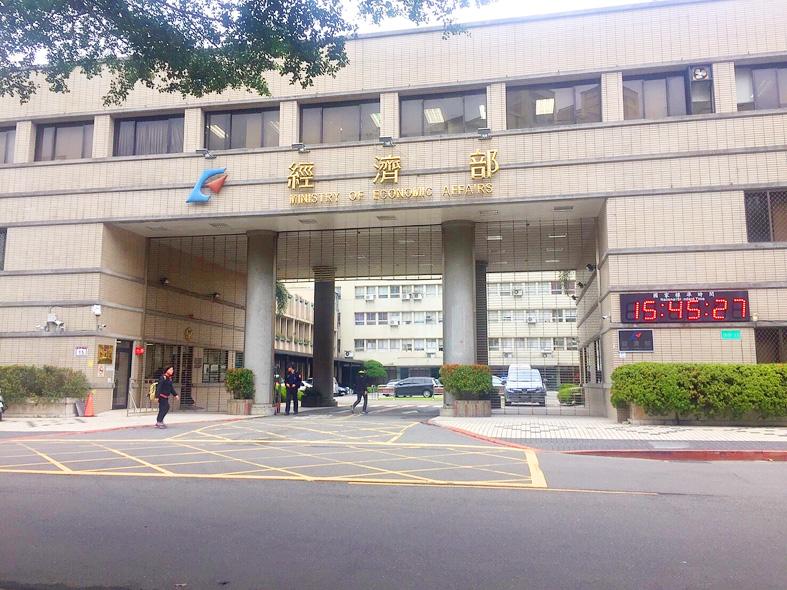The InvesTaiwan Service Center last week approved metal surface treatment company Ever Superior Technologies Corp’s (長鑽科技) application to invest NT$100 million (US$3.46 million) in a Taoyuan plant as part of a government incentive program, the Ministry of Economic Affairs said on Friday.
The Taoyuan-based company would spend the funds building production facilities in the city’s Guanyin District (觀音), where it manufactures thermal modules, and components and parts for the inverters of electric vehicles, the ministry said in a statement.
Ever Superior Technologies — a joint venture between Superior Plating Technology Co (匯鑽科技), Evergreen Aviation Technologies Corp (長榮航太科技) and Amulaire Thermal Technology Inc (艾姆勒車電) — was established in May last year to manufacture parts to support the electric vehicle supply chains.

Photo: Huang Pei-chun, Taipei Times
Superior Plating and Evergreen Aviation each own 35 percent of the company, while Amulaire Thermal owns 30 percent, ministry data showed.
The announcement came a day after InvesTaiwan approved a precision components processing manufacturer’s application to invest NT$200 million to expand and upgrade production of bicycle and electric vehicle components.
The ministry did not disclose the name of the manufacturer, saying only that it has more than 20 years of experience in original equipment manufacturing and original design manufacturing, and it mainly supplies products to producers of vehicles and bicycles, as well as clients in the computer, communications and consumer sectors.
The investments came as the National Development Council on March 30 unveiled the government’s road map for Taiwan to reach carbon neutrality by 2050.
Under the plans, the government aims to promote the development of green transportation by increasing the market share of new electric vehicles to 30 percent by 2030 and 60 percent by 2035, while phasing out fossil fuel-powered vehicles by 2040.
“Under the global trend of pursuing net-zero carbon emissions by 2050, the market deployment and product development for electric vehicles are key strategies for future investment,” the ministry said in the statement.
Ever Superior, with a paid-in capital of NT$180 million, aims to introduce energy-saving and low-carbon emission equipment at the new Guanyin production site, the ministry said.
The company also plans to recycle wastewater from surface treatment processes and introduce an energy management system, that would use electricity meters and environmental sensors to reduce electricity consumption and carbon emissions, it said.
The investment is expected to create 83 jobs, it added.

SEEKING CLARITY: Washington should not adopt measures that create uncertainties for ‘existing semiconductor investments,’ TSMC said referring to its US$165 billion in the US Taiwan Semiconductor Manufacturing Co (TSMC, 台積電) told the US that any future tariffs on Taiwanese semiconductors could reduce demand for chips and derail its pledge to increase its investment in Arizona. “New import restrictions could jeopardize current US leadership in the competitive technology industry and create uncertainties for many committed semiconductor capital projects in the US, including TSMC Arizona’s significant investment plan in Phoenix,” the chipmaker wrote in a letter to the US Department of Commerce. TSMC issued the warning in response to a solicitation for comments by the department on a possible tariff on semiconductor imports by US President Donald Trump’s

‘FAILED EXPORT CONTROLS’: Jensen Huang said that Washington should maximize the speed of AI diffusion, because not doing so would give competitors an advantage Nvidia Corp cofounder and chief executive officer Jensen Huang (黃仁勳) yesterday criticized the US government’s restrictions on exports of artificial intelligence (AI) chips to China, saying that the policy was a failure and would only spur China to accelerate AI development. The export controls gave China the spirit, motivation and government support to accelerate AI development, Huang told reporters at the Computex trade show in Taipei. The competition in China is already intense, given its strong software capabilities, extensive technology ecosystems and work efficiency, he said. “All in all, the export controls were a failure. The facts would suggest it,” he said. “The US

The government has launched a three-pronged strategy to attract local and international talent, aiming to position Taiwan as a new global hub following Nvidia Corp’s announcement that it has chosen Taipei as the site of its Taiwan headquarters. Nvidia cofounder and CEO Jensen Huang (黃仁勳) on Monday last week announced during his keynote speech at the Computex trade show in Taipei that the Nvidia Constellation, the company’s planned Taiwan headquarters, would be located in the Beitou-Shilin Technology Park (北投士林科技園區) in Taipei. Huang’s decision to establish a base in Taiwan is “primarily due to Taiwan’s talent pool and its strength in the semiconductor

French President Emmanuel Macron has expressed gratitude to Hon Hai Precision Industry Co (鴻海精密) for its plan to invest approximately 250 million euros (US$278 million) in a joint venture in France focused on the semiconductor and space industries. On his official X account on Tuesday, Macron thanked Hon Hai, also known globally as Foxconn Technology Group (富士康科技集團), for its investment projects announced at Choose France, a flagship economic summit held on Monday to attract foreign investment. In the post, Macron included a GIF displaying the national flag of the Republic of China (Taiwan), as he did for other foreign investors, including China-based